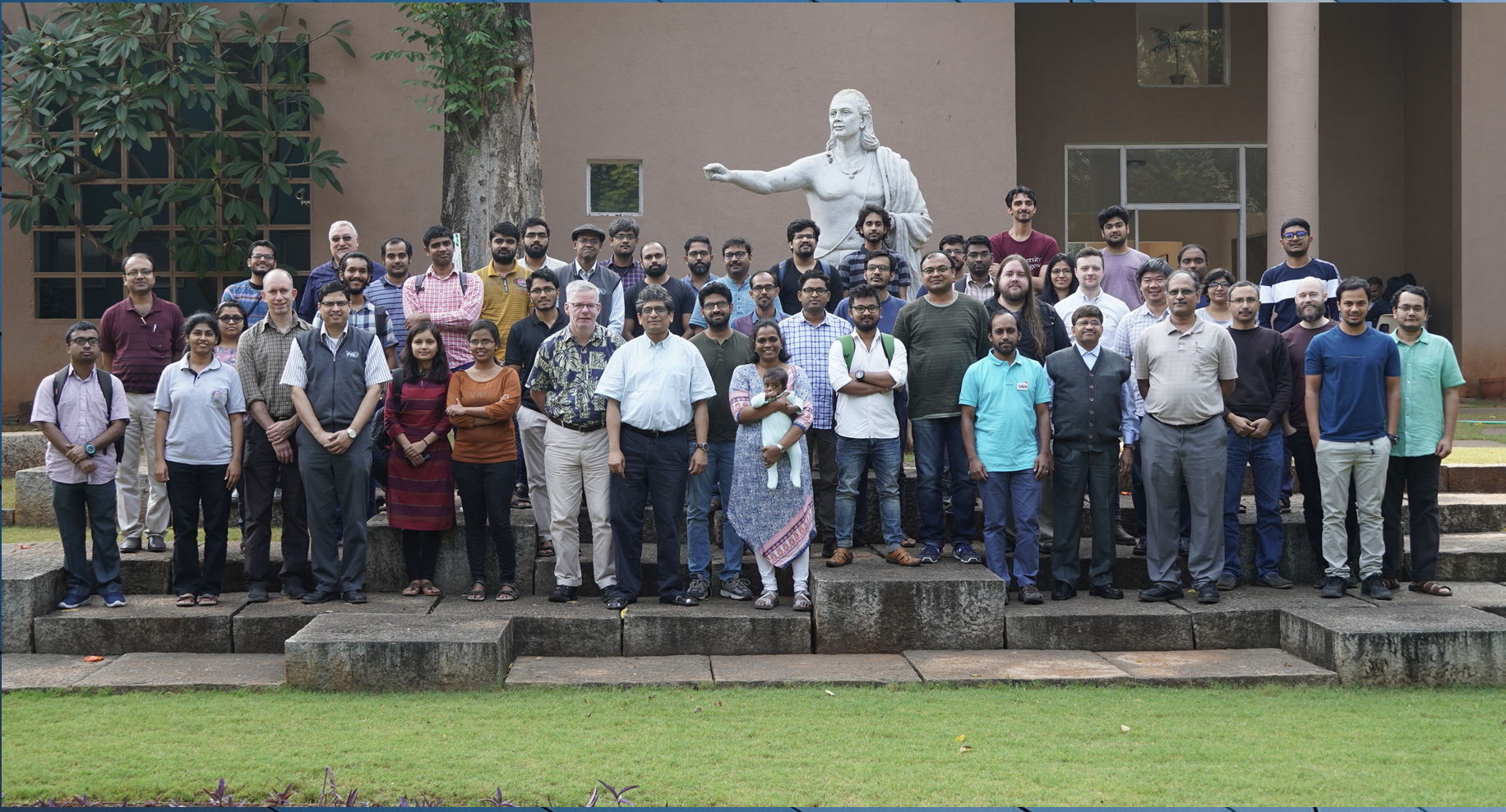Open Data Workshop at IUCAA
The Newton-Bhabha - Open Data workshop was held at IUCAA during December 2019.
The workshop provides an opportunity for students, postdocs and other academics interested in gravitational waves as well as others interested in doing science with the LIGO-India observatory.
Experts in the field of gravitational waves were involved with speakers from both the U.K. (Giles Hammond, Martin Hendry, Chris Messenger and Ik Siong Heng) as well as from India (Somak Raychaudhury, Sukanta Bose, to name a few) as well as other members from the International LIGO collaboration such as Fred Raab. The speakers expertise ranged from experimental, to data analysis and theoretical gravitational waves, given a rounded picture of what is required in order to do gravitational wave research. In addition, EPO efforts, scope and collaboration with LI-EPO were also discussed.
A hands-on session was organised as part of the Open data part of the workshop some of the sessions included working on the basics of GW data, applications of deep learning to to classify BBH signal vs. noise and a non-standard yet improved data analysis pipeline.
Experimental sessions were also held in parallel where the main topics were on LIGO coatings research and cryogenic suspension technology and crucial discussions on the stringent requirements and timelines faced for the next generations gravitational wave detectors were held.
Key research areas were highlighted were involvement from the Indian research community can be of help as well as members of LISC and LI-TRD explained the urgent need for trained manpower with the upcoming LIGO-India detector as well as possible solutions to problems in next generation LIGO controls.
The sessions were attended by PhD students, postdocs and a couple of Masters students, primarily, from various parts of India and from IUCAA with over 60 participants.
The organising committee was co-chaired by Anupreeta More and Manasadevi Thirugnanasambandam.


